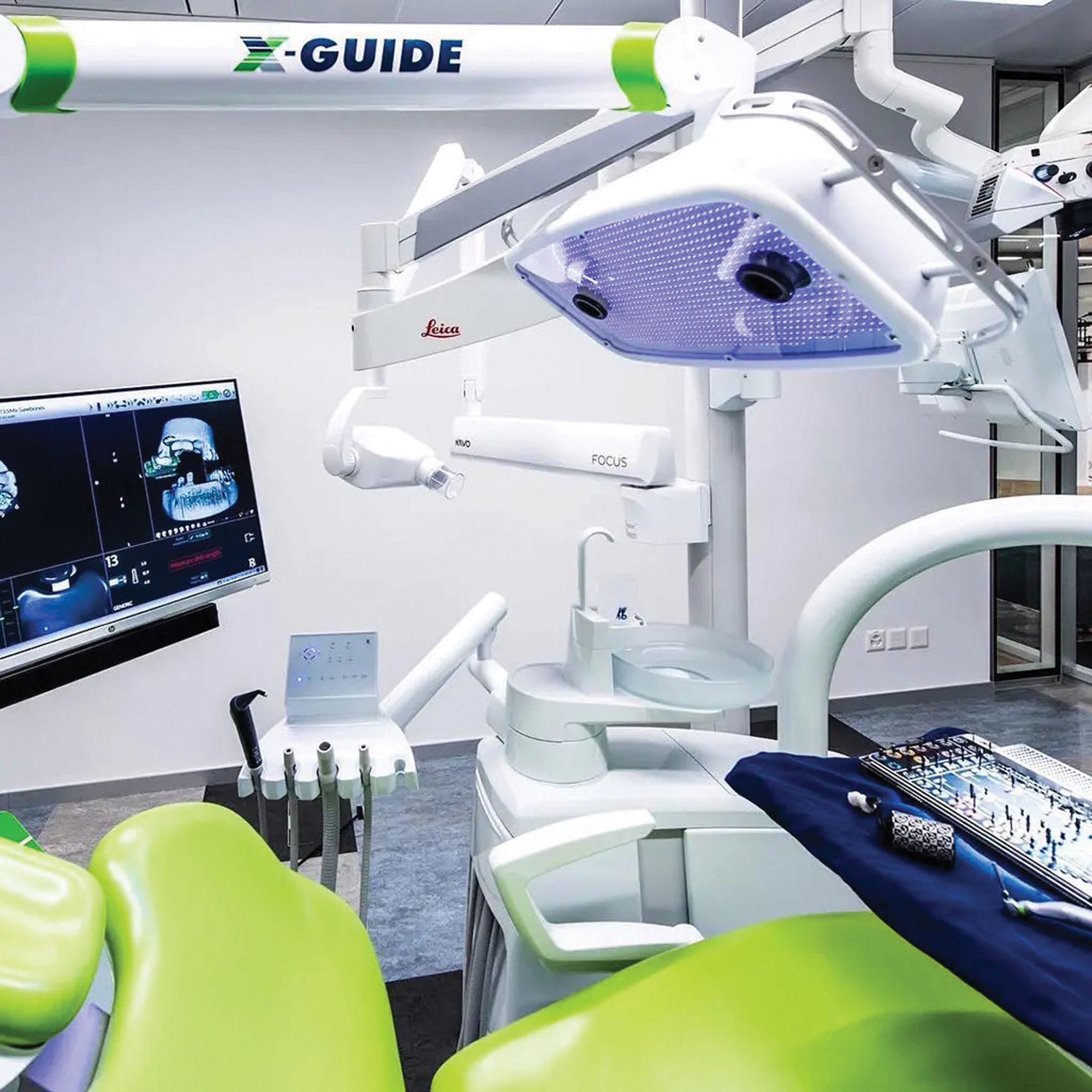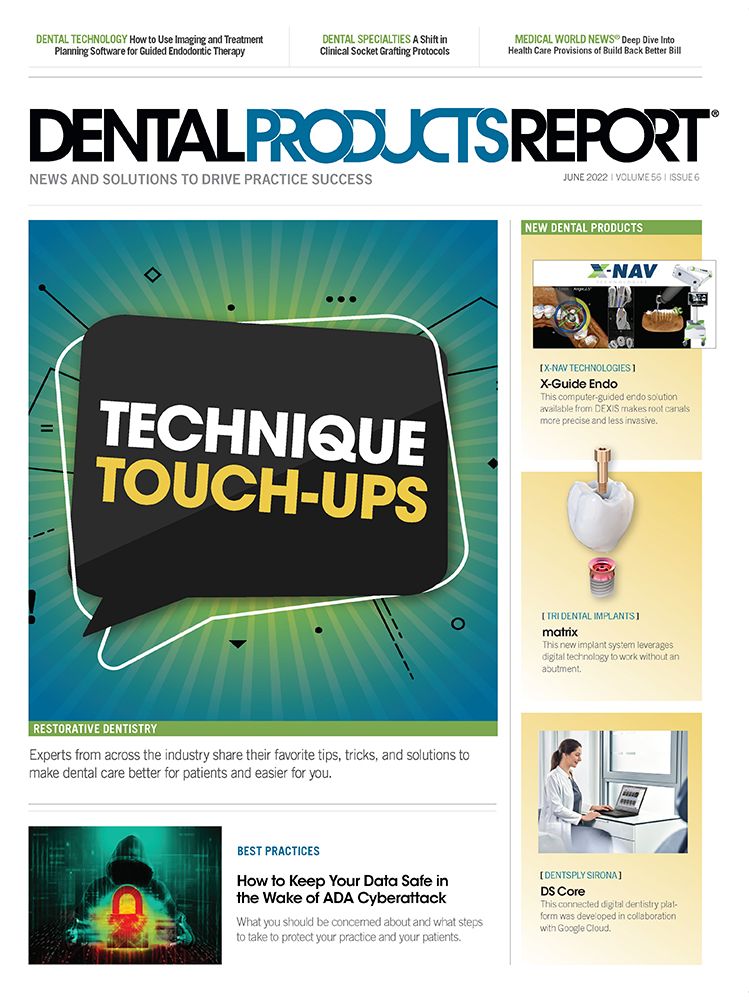When planning dental implant surgeries in his Atlanta, Georgia, practice, Robert Pauley Jr, DMD, emphasizes the importance of surgical guides. Dr Pauley uses the X-Guide® from X-Nav Technologies.
X-Guide is a 3D digital navigation guide for dental implant surgeries. It takes cone beam computed tomography (CBCT) scans and digitally prepares a surgical guide. Dr Pauley likens its technology to other life-changing, quality of life systems.
“It’s kind of like using your backup camera in your car or your lane assist,” Dr Pauley says. “We’ve seen technology help us in many facets, and now this is just a great way to do that in the implant field.”
How It Works
X-Guide uses a variety of modules and features to create a comprehensive system for implant surgery. It begins with a treatment planning guide that uses both CBCT scans and intraoral scans to create the surgery guide, which clinicians can then use for planning.
“By using all that, as far as your intraoral scan and your actual camera pictures and your smile valuation, you can start to do reverse engineering to plan your prosthesis,” Dr Pauley says. “X-Guide gives you the chance to then place these implants where you want them, and you can use all of these technologies that are available for you to develop your treatment plan in a way that you’re going to optimize your surgical results and, finally, optimize your prosthetic results.”
Not only does this treatment guide make things easier for the clinician doing the surgery, but it also demonstrates to the patient the importance of the technology behind it.
X-Guide®
X-Guide® is a dental implant surgery system that includes treatment planning, 3D navigation, and a live surgery guide. It features a 360° single view of the drill position and anatomy, which allows for a same-day guided surgery and saves money and time for both patient and practitioner.
DEXIS
888-883-3947 | DEXIS.com
“It’s very cool to let them see their treatment plan and the utilization of the technology,” Dr Pauley says. “It becomes a marketing tool. They’re seeing that you’re cutting-edge or that you’re staying up on the latest [technology].”
X-Guide also uses X-Point technology, a dynamic focus technology that appears on a screen during surgery. This helps the clinician guide the surgical implant with precision and accuracy. X-Point combines with X-Guide Dynamic 3D Navigation during surgery, allowing the surgeon and dental implant expert to follow the guide as they work in the patient’s mouth.
Other Features
A feature that Dr Pauley finds particularly helpful is the parallel planning tools. This makes it easier to optimize the placement of adjacent implants that are in close proximity.
“This gives you a chance to plan your prothesis, maybe a provisional prosthesis, as you’re immediately loading,” Dr Pauley says. “That’s a great thing.”
Dr Pauley also finds its ergonomic benefits helpful because X-Guide allows you to look at the screen as you go.
“You’re not bending over, you’re looking at the monitor and you’re keeping your eyes focused on the bulls-eye,” Dr Pauley says. “That’s to make sure you’re placing the implant exactly where you planned it, and then it’s giving it back to you in real time.”
X-Guide also allows for a certain flexibility in the process, as opposed to traditional surgical guides that may take longer to print or manufacture.
“If, when you start a surgery you look at your site and say, ‘Hey, I wish my plan was a millimeter more buccal or millimeter more mesial closer to the tooth,’ you can just jump right back into the planning stage on the software,” Dr Pauley says. “That’s not a possibility if you’re using a printed surgical guide.”
Finally, Dr Pauley finds a lot of utility in X-Guide’s ability to predict areas where peri-implantitis may occur so it can be avoided through treatment planning.
“All of this comingles and works together,” Dr Pauley says. “I love it, I use it every time. There’s just a competence that I know I’m going to place it where I planned.”
X-Guide is a registered trademark of X-Nav Technologies.

